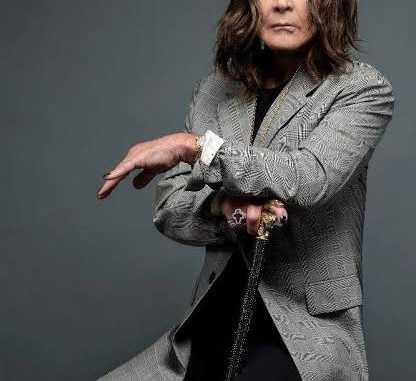
In the wake of Ozzy Osbourne’s passing, the outpouring of emotion from fans around the world has been profound and deeply personal. Social media is filled with heartfelt tributes, candlelit vigils are taking place in cities across the globe, and classic tracks from Black Sabbath and Ozzy’s solo career are echoing across airwaves once again. But amid the collective grief, a question has surfaced from some: “Why are so many people mourning Ozzy? People act like they knew the man.”
The answer is both simple and deeply human: for millions, the loss of Ozzy Osbourne is not just about the death of a rock legend — it’s about the passing of an era, and the music that shaped their lives.
Ozzy Osbourne wasn’t just the Prince of Darkness or the controversial frontman of one of heavy metal’s most iconic bands. He was the voice that defined a generation, a soundtrack to youth, rebellion, freedom, and firsts. For many fans, his music wasn’t just background noise — it was the companion to pivotal life moments.
When “Crazy Train” blared through speakers at high school parties, it marked the start of carefree nights and teenage adventures. “Mama, I’m Coming Home” was more than a ballad — it played during homecomings from college, long drives on lonely highways, and heartfelt reunions. His songs were at graduation parties, weddings, 21st birthdays, and on cassette decks during those first solo drives, windows down, wind in your hair, feeling infinite.
Ozzy’s music spanned decades, and each era brought a new wave of fans who found pieces of themselves in his lyrics, his raw emotion, and his refusal to conform. His story — a working-class kid from Birmingham who rose to global fame — was one of perseverance, chaos, and ultimately, resilience. It mirrored the turbulent, transformative journeys of many of his listeners.
This mourning, then, isn’t just for Ozzy the man, but for the people we once were when we first heard him. Every riff carries the memory of a simpler time — a time when life stretched endlessly ahead and the nights were filled with possibility. The ache we feel now is less about the artist himself and more about the chapters of our lives that his music bookmarked.
For Gen X and older Millennials, Ozzy represented a countercultural figure who said the things many were afraid to. He wasn’t polished. He wasn’t sanitized. He was raw, imperfect, and real — and that made him ours. He was the unfiltered voice for misfits, outcasts, and anyone who ever felt like they didn’t belong. His music wasn’t just a distraction; it was a lifeline.
And let’s not forget the Osbournes — the reality TV family that brought Ozzy into living rooms in the early 2000s and gave fans a glimpse of the chaotic, loving, and often hilarious world he inhabited. Through that lens, Ozzy became more than just a rock god; he became a father figure, a husband, a human being struggling through the same complexities of life we all do. It made him relatable in ways few rock stars ever were.
So when people cry, when they light candles, when they blast “Mr. Crowley” or “No More Tears” in tribute, they are doing more than mourning a man. They are mourning a piece of themselves. They’re grieving the soundtracks to their youth, the chapters of their lives that feel further away with each passing year.
Ozzy Osbourne’s death serves as a stark reminder of our own mortality. When someone who loomed so large in our cultural memory passes, it punctures the illusion of permanence. We realize, suddenly and painfully, that the gods of our youth are not immortal — and neither are we.
In the end, we mourn Ozzy because his music made us feel alive. Because he was there — in our headphones, in our cars, at our parties, in our loneliest hours — even if we never met him. And now, as we say goodbye, we’re not just letting go of a legendary musician. We’re letting go of the moments, the memories, and the music that made us who we are.
And that is something worth mourning.
Would you like a version formatted for print or a publication?
Leave a Reply